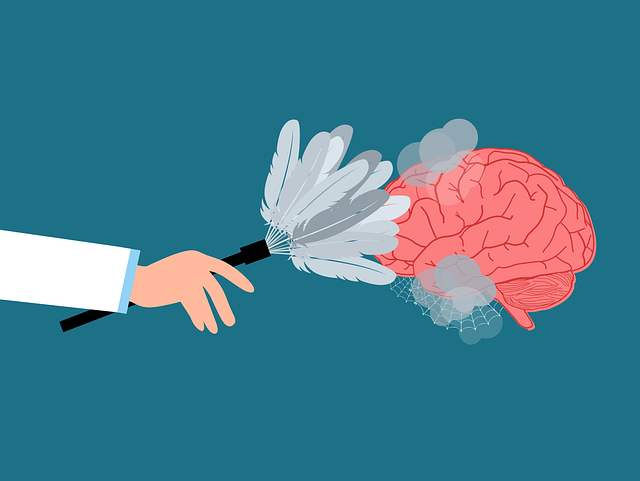Arvada Trauma Therapy highlights the vital role of Crisis Intervention Teams (CITs) in managing trauma and emotional crises, especially in diverse communities. Through comprehensive training programs, CIT members learn risk assessment, communication techniques, and stress management to de-escalate situations effectively. These teams provide immediate support and foster recovery through empathy, active listening, and cultural competency. The holistic approach includes evidence-based interventions, stress reduction methods, and mental health education, preparing professionals for real-world crises via simulation exercises. Ongoing support ensures CIT members can confidently apply their skills, contributing to the well-being of both responders and those they assist.
In times of trauma, having well-trained Crisis Intervention Teams (CITs) can make a significant difference. This article explores the critical role of CITs in providing immediate support during crises, focusing on Arvada Trauma Therapy training programs. We delve into the key components and methodologies that equip team members to handle real-world scenarios effectively. From understanding trauma to practical skills like simulation exercises, these programs ensure professionals are prepared to offer compassionate, competent care.
- Understanding Crisis Intervention Teams: A Vital Resource in Times of Trauma
- The Role and Responsibilities of a Crisis Intervention Team Member
- Components of Effective Arvada Trauma Therapy Training Programs
- Preparing for Real-World Scenarios: Simulation and Role-Play Exercises
- Continuous Support and Development After Training Conclusion
Understanding Crisis Intervention Teams: A Vital Resource in Times of Trauma

In times of trauma, whether it be an individual in crisis or a community affected by a major event, having well-trained professionals ready to intervene can make all the difference. This is where Crisis Intervention Teams (CITs) step in as vital resources. CITs are specialized groups of mental health professionals equipped with the knowledge and skills to provide immediate support during times of acute distress. They play a crucial role in ensuring that individuals facing traumatic situations receive timely, effective care.
Arvada Trauma Therapy recognizes the importance of these teams, especially in diverse community settings. Training programs for CITs focus on various aspects, including risk assessment, communication strategies, and stress management techniques. By mastering these skills, mental health professionals can better navigate complex situations, de-escalate crises, and foster a supportive environment. Effective crisis intervention not only aids in immediate recovery but also paves the way for long-term mental health stability.
The Role and Responsibilities of a Crisis Intervention Team Member

Crisis Intervention Team (CIT) members play a vital role in providing immediate support to individuals experiencing severe emotional crises or traumas. These trained professionals are equipped to offer a safe and non-judgmental environment, facilitating effective communication and de-escalation techniques. When faced with a crisis, CIT team members work collaboratively to assess the situation, identify immediate needs, and develop strategies for short-term stability and long-term recovery.
As part of their responsibilities, CIT members must possess strong empathy and active listening skills to understand the unique needs of each individual. They facilitate emotional healing processes by creating a sense of trust and connection, helping clients process their experiences and emotions safely. Moreover, these teams often include healthcare providers who undergo specialized training in cultural competency, ensuring they can offer tailored support while respecting diverse backgrounds and beliefs. This holistic approach, combined with effective intervention strategies, contributes to the overall well-being and anxiety relief for those facing traumatic or stressful situations, such as those seeking Arvada trauma therapy services.
Components of Effective Arvada Trauma Therapy Training Programs

Effective Arvada Trauma Therapy training programs are meticulously crafted to equip individuals with a comprehensive understanding of trauma and its impact on human psychology. These programs typically incorporate a multi-faceted approach, addressing both theoretical knowledge and practical skills. Participants learn about various trauma models, including complex traumatic stress disorder (C-TSD) and its unique manifestations. The curriculum often emphasizes the importance of creating safe spaces, ensuring cultural sensitivity, and promoting empathy towards individuals who have experienced trauma.
Key components include hands-on training in evidence-based interventions like cognitive behavioral therapy (CBT) and eye movement desensitization and reprocessing (EMDR). Additionally, programs focus on building resilience and coping mechanisms through stress reduction methods. Mental illness stigma reduction efforts are also integrated, fostering an environment of understanding and support. Furthermore, participants gain insights into advocacy and policy analysis related to mental health, encouraging them to contribute to systemic changes that promote better trauma care and support services in Arvada and beyond.
Preparing for Real-World Scenarios: Simulation and Role-Play Exercises

Preparing for real-world scenarios is a cornerstone of crisis intervention team training. Simulation and role-play exercises are powerful tools that allow participants to experience high-pressure situations safely and gain valuable insights. These exercises replicate diverse crises, from emotional meltdowns to traumatic events, providing an immersive learning environment. By stepping into these roles, trainees enhance their ability to think quickly, communicate effectively, and implement appropriate interventions.
At Arvada Trauma Therapy, we emphasize the importance of hands-on training. Through realistic simulations, participants develop a confidence-boosting resilience that translates directly into real-life crisis situations. Emphasizing emotional regulation and mind over matter principles, our programs equip individuals with the skills to navigate challenging scenarios with composure and effectiveness.
Continuous Support and Development After Training Conclusion

After successful completion of crisis intervention team training programs, such as those offered by Arvada Trauma Therapy, the real work begins. Continuous support and development are vital components to ensure that participants can effectively apply what they’ve learned in real-life situations. Regular follow-up sessions, peer support groups, and ongoing mental health education programs design tailored for crisis responders can significantly enhance their skills and resilience.
Encouraging ongoing learning fosters self-esteem improvement and inner strength development among team members. This sustained commitment to professional growth ensures that the crisis intervention team remains equipped to handle a wide range of challenges. By integrating these practices, organizations like Arvada Trauma Therapy contribute to the overall well-being of their responders, enabling them to effectively navigate the complexities of crisis interventions with confidence and compassion.
Crisis intervention team training programs, like those offering Arvada Trauma Therapy, are invaluable tools for equipping individuals with the skills to support others during traumatic events. By understanding the unique roles and responsibilities within a crisis intervention team, participating in immersive simulation exercises, and committing to ongoing development, we can ensure that these teams are prepared to provide effective, compassionate care in real-world scenarios. Investing in comprehensive training is crucial for fostering resilient communities capable of navigating the challenges posed by trauma.










